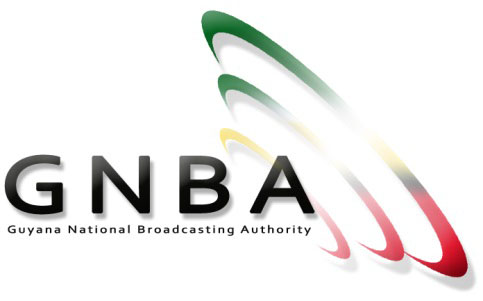The Guyana National Broadcasting Authority (GNBA) recently launched its Citizen Monitoring Programme which will identify and report shortcomings and infractions committed by broadcasters.
“…by virtue of this citizen monitoring facility, the citizens of Guyana will be able…to draw to the attention of the authority, the shortcomings and infractions committed by our broadcasters and also to indicate whether in the various broadcast, operational zones, citizens are receiving unhindered access to information,” Chairman of GNBA’s Board of Directors, Leslie Sobers, told a press conference. The press engagement was held at the authority’s Lamaha Street headquarters. Sobers observed that the initiative forms part of the GNBA’s Strategic Plan.
Jocelyne Josiah, another GNBA board member, explained that the first phase of the initiative includes a pilot programme, through which persons who apply to become citizen monitors will be trained. The training will highlight what they will look for in their monitoring activities. Another GNBA Board member, Dr Rovin Deodat, shared that interested persons can access an application form to sign up for the programme from the GNBA’s website at http://gnba.gov.gy/complaint-form/
The veteran broadcaster said that interested persons will also find a concept form which explains the concepts they will need to be au fait with, and a complaint form, which is the mode through which they will be required to report any infractions observed. Deodat said that these volunteer citizen monitors will not be given the full range of infractions to police and report. Instead, he clarified, they will become learned in the ones which are easily identifiable, including obscene language, nudity, and distasteful language and images.
He said that this phase will last for approximately six months, after which the participants will be assessed to ascertain their effectiveness and aptitude for this kind of work. The persons who attain the best scores from this process will receive further training, and will ultimately be engaged to conduct further monitoring.
Deodat, who said that Guyana was known as the “wild west of broadcasting” prior to the promulgation of the Broadcasting Act, added that the authority’s approach represents the effective end of the “beg your pardon” attitude by broadcasters to ensuring that the content aired by their entities is in keeping with the dictates of the legislation.
He said that while he understands that some of the recurring infractions are due to a lack of awareness and resources to self-monitor and ensure compliance, broadcasters are nevertheless required to prevent infractions because the Act mandates it.
Sobers said that the initiative will be reviewed in June 2020.
According to Deodat, the GNBA’s rationale for undertaking the initiative is the authority’s current capacity, or lack thereof. He shared that the authority currently has 12 monitors in its employ, but observed that it is not currently capable of monitoring both the primary and non-primary broadcasting zones.
Deodat said that through the initiative, the GNBA will have more ears and minds involved in monitoring, which it hopes will help to lift standards in broadcasting and ensure that “trash” is not broadcast.
Such an initiative, if effective, will be timely, as Josiah said that infractions by broadcasters are on the rise.
Joint monitoring
Meanwhile, Sobers also updated the media on progress towards the establishment of a joint monitoring mechanism to be set up through collaboration between the GNBA, the Guyana Elections Commission (GECOM), and the Ethnic Relations Commission (ERC).
This initiative is prompted by, and aims to monitor the conduct of broadcasters during general and regional election on March 2nd, 2020.
“I take this opportunity to point out to broadcasters that though they may be sympathetic to the policies, plans and projections of a particular political party, their obligation to the Guyanese people is a professional non-partisan approach to information dissemination, as contemplated by [Section 32 (j) of] the Broadcasting Act,” Sobers said.
The relevant section stipulates that in the granting of licences and the setting of conditions, the GNBA shall ensure that: “Programmes dealing with controversial public policy or matters of political or industrial controversy must meet standards of fairness and balance, accuracy, maintaining a proper balance and respect for truth and integrity and always ensuring that opposing views are not misrepresented.”
Elaborating on what will or will not be condoned, Sobers said that while the GNBA cannot, and will not dictate whether or not a broadcaster carries material from any particular party, if a broadcaster does accept to carry material from competing parties, there must be fairness of treatment.
For instance, he said that it would be unfair for a broadcaster to carry material from one political party during a time which is advantageous, and the material of another during a time which is not advantageous.
Broadcaster Recognition 2020
Sobers also said that another aspect of its Strategic Plan, a Broadcasting Recognition Scheme, will be rolled out next year to give recognition to broadcasters that perform according to the standard established by the Act. He said that to give effect to the scheme, the authority will be looking at several variables, including assessing the level of local content produced and aired, the level of in-house and other training for staff, and general compliance with the Act. He suggested that “star broadcasters” stand to derive benefits from this scheme.
Meantime, it was stated that having noted the evolution of broadcasting now enables unlicensed, unregulated entities to broadcast across a range of social media platforms, the GNBA will next year recommend to government that the regulation of broadcasting on these platforms fall within its legal scope.






